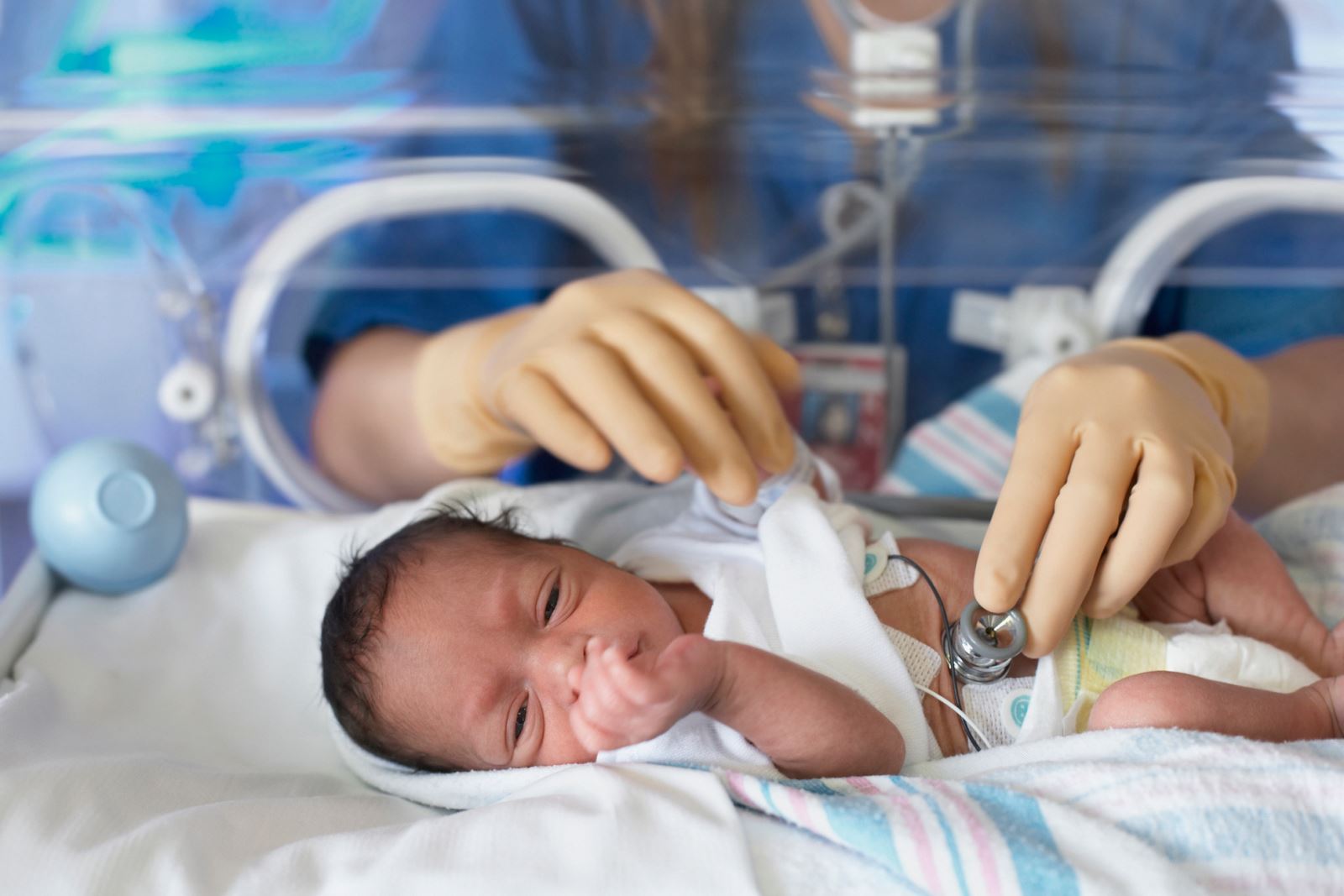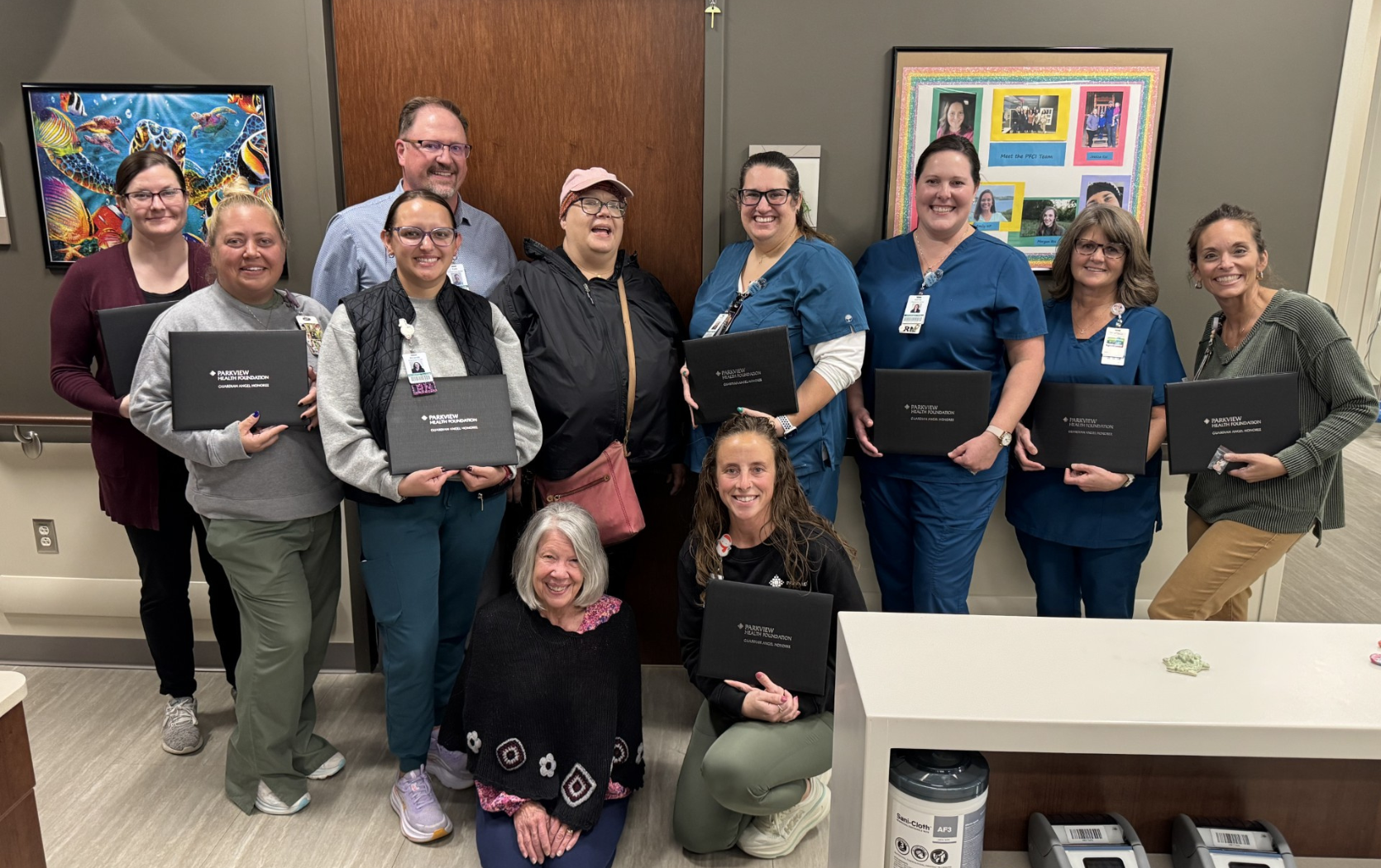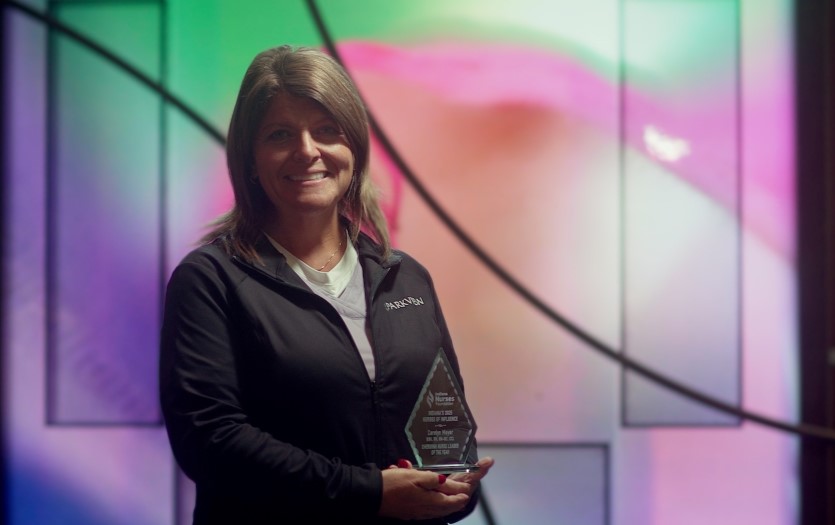
Martin Luther once said, “Nothing in the world causes so much misery as uncertainty.” For parents with a newborn, uncertainty can replace one of the best moments of their lives with fear and anxiety, especially when the health and well-being of their child hang in the balance.
One challenge that many infants face once they’re born is the varying levels of carbon dioxide and oxygen in their blood due to respiratory issues. Fluctuations in these levels can cause an imbalance, resulting in permanent brain damage, cerebral palsy, seizures and even death. For this reason, babies must be constantly monitored.
“The most accurate way to test carbon dioxide and oxygen levels have historically been through blood gasses which involve taking a blood sample and then processing it through a machine. However, this system of monitoring adds several more health risks to the gas changes themselves,” Win Boon, MD, PPG – Neonatology, said. “Babies, especially those that are premature, are very small and do not have enough blood to be able to provide samples every few hours to track their oxygen and carbon dioxide levels. It’s important to add that drawing blood also causes a lot of pain for an infant and each break of the skin puts them at risk for an infection that can hinder development.”
It was overwhelmingly obvious that the NICU needed a noninvasive way of continuously monitoring and tracking changes occurring within their tiniest patients. With hope in their hearts, the NICU contacted the Parkview Foundation and fortunately, the team was able to utilize the generosity of Foundation donors to purchase two Transcutaneous pCO2 Monitoring Systems equipped with CombiM modules (TCM CombiM).
The TCM CombiM monitor system works by placing sensors on the infant’s body while still allowing the skin to breathe. The sensors read the gas diffused through the skin and if the levels of oxygen or carbon dioxide are out of balance, an alarm will sound to alert the team. The noninvasive TCM CombiM monitor has many benefits. One is the continuous calculating and logging of blood gasses as opposed to only obtaining this vital information when blood has been drawn. This monitoring system also aids in early detection, allowing hospital staff to treat with a proactive approach while preventing large, potentially life-threatening fluctuations in oxygen and carbon dioxide levels that could prove harmful to babies.
“The TCM CombiM system lessens blood work needs, protects skin integrity, minimizes the risk of infection and is comfortable for the baby. The addition of these two monitoring systems will benefit approximately 100-250 critical infants in the Parkview NICU each year,” Dr. Boon added.
While it’s been a blessing that the Foundation was able to purchase two of these monitoring systems by way of donor generosity, Dr. Boon pointed out that it’s a goal to eventually have enough TCM CombiM monitors so they become a standard for all patients.
For more information or to find out how you can help protect the lives of Parkview’s smallest patients, visit ParkviewFoundations.org.



